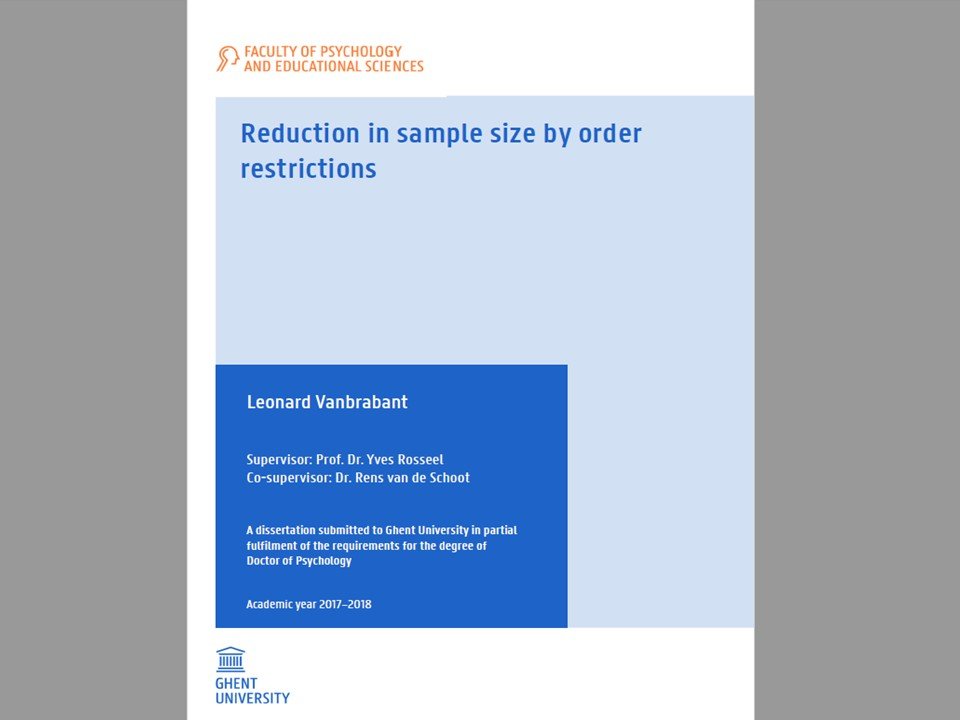Reduction in sample size by order restrictions
In this dissertation, we focused on two alternative approaches to evaluate the hypothesis of interest more directly, i.e. informative hypothesis testing and model selection using order-restricted information criteria.
A General procedure for Testing Inequality Constrained Hypotheses in SEM
Researchers in the social and behavioral sciences often have clear expectations about the order and/or the sign of the parameters in their statistical model. For example, a researcher might expect that regression coefficient β1 is larger than β2 and β3.
Beyond Null Hypthesis Testing
Many researchers have no particular interest in a null hypothesis assuming that “nothing is going on”, so why test it at all? Evaluating specific, directional expectations produces more insightful results than sequentially testing traditional null hypotheses against catch-all rivals.
Constrained statistical inference: sample-size tables for ANOVA and regression
Researchers in the social and behavioral sciences often have clear expectations about the order/direction of the parameters in their statistical model. For example, a researcher might expect that regression coefficient β1 is larger than β2 and β3.
The Satisfaction With Life Scale: Measurement invariance across immigrant groups
The current study examined measurement invariance of the Satisfaction With Life Scale (SWLS; Diener, Emmons, Larsen, & Griffin, 1985) across three immigrant groups, namely, immigrants from the Former Soviet Union (FSU) in Israel, Turkish-Bulgarians, and Turkish-Germans. The results demonstrate measurement invariance of the SWLS across groups.
Meaning-in-life orientations and values in youth: Cross-cultural comparison
Search for purposes in life and the meaning of life is one of the developmental tasks in youth. The Meaning-in-Life Orientations test (MOL) is often used to assess purposes in life and meaningfulness of life and is often used to compare individuals and groups.
Measurement invariance of the Emotion Regulation Questionnaire (ERQ). A cross-national validity study
The goal of this research was to examine the measurement invariance of the Emotion Regulation Questionnaire (ERQ; Gross & John, 2003) across two European nations. Participants were Italian and German undergraduate students.








